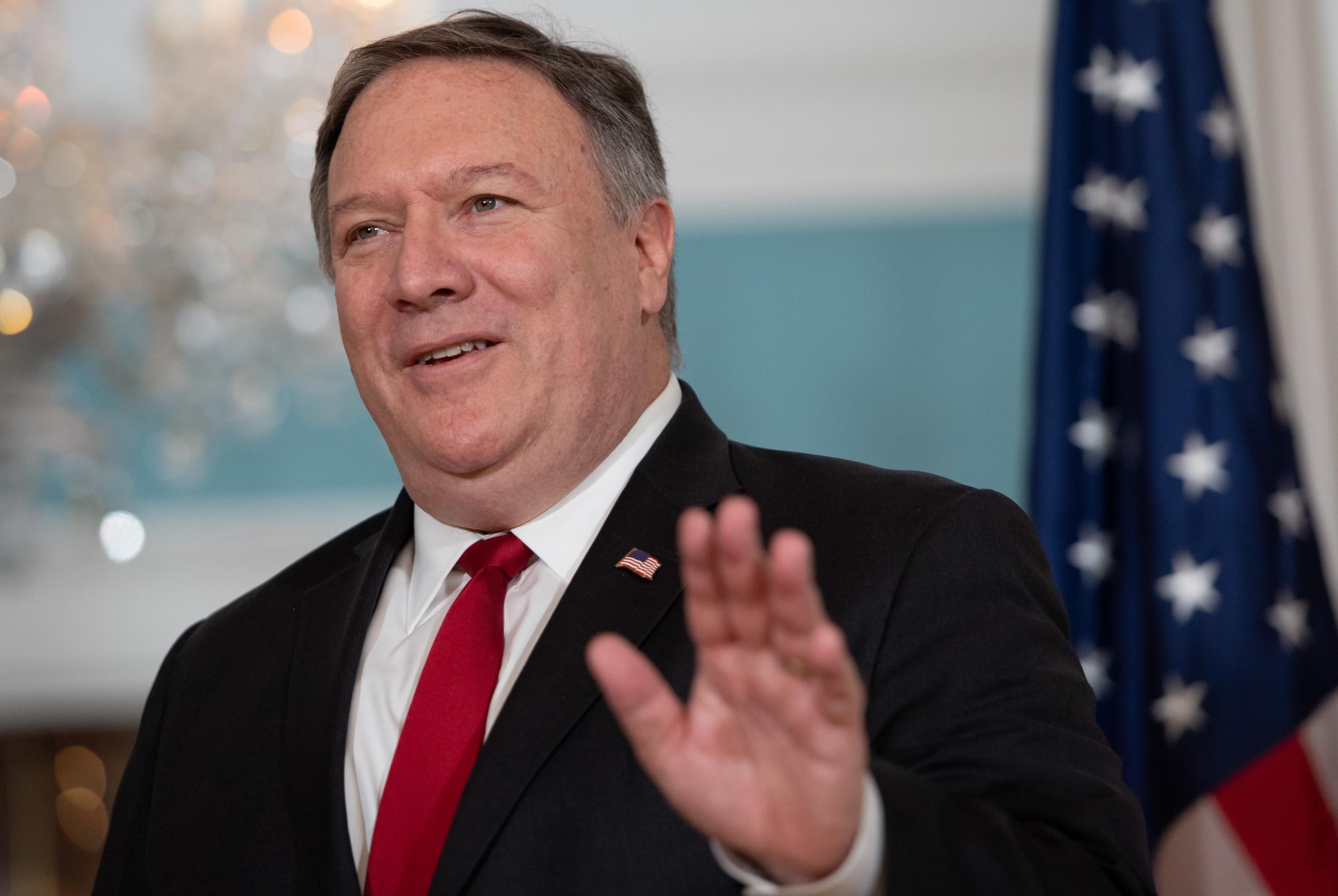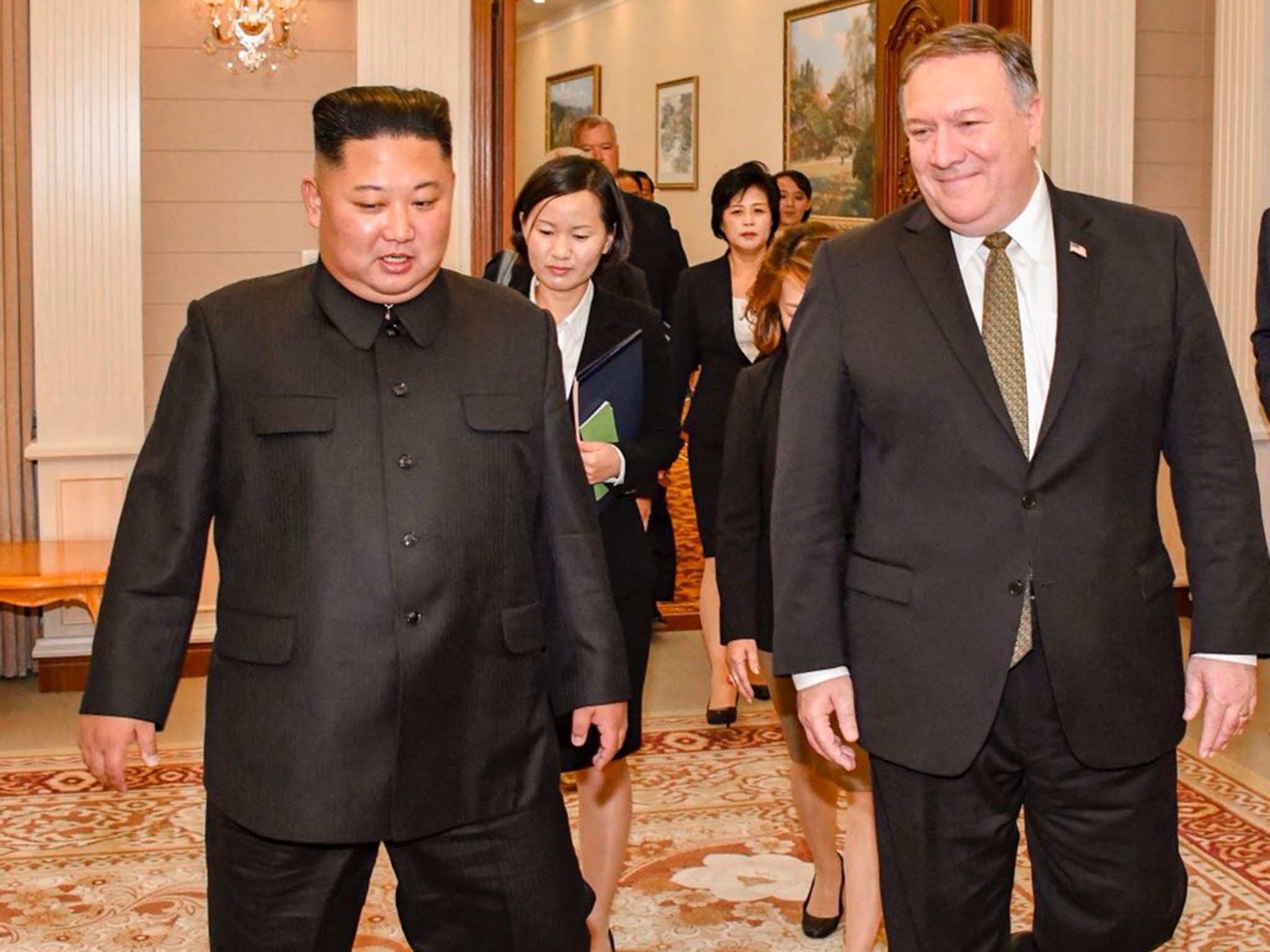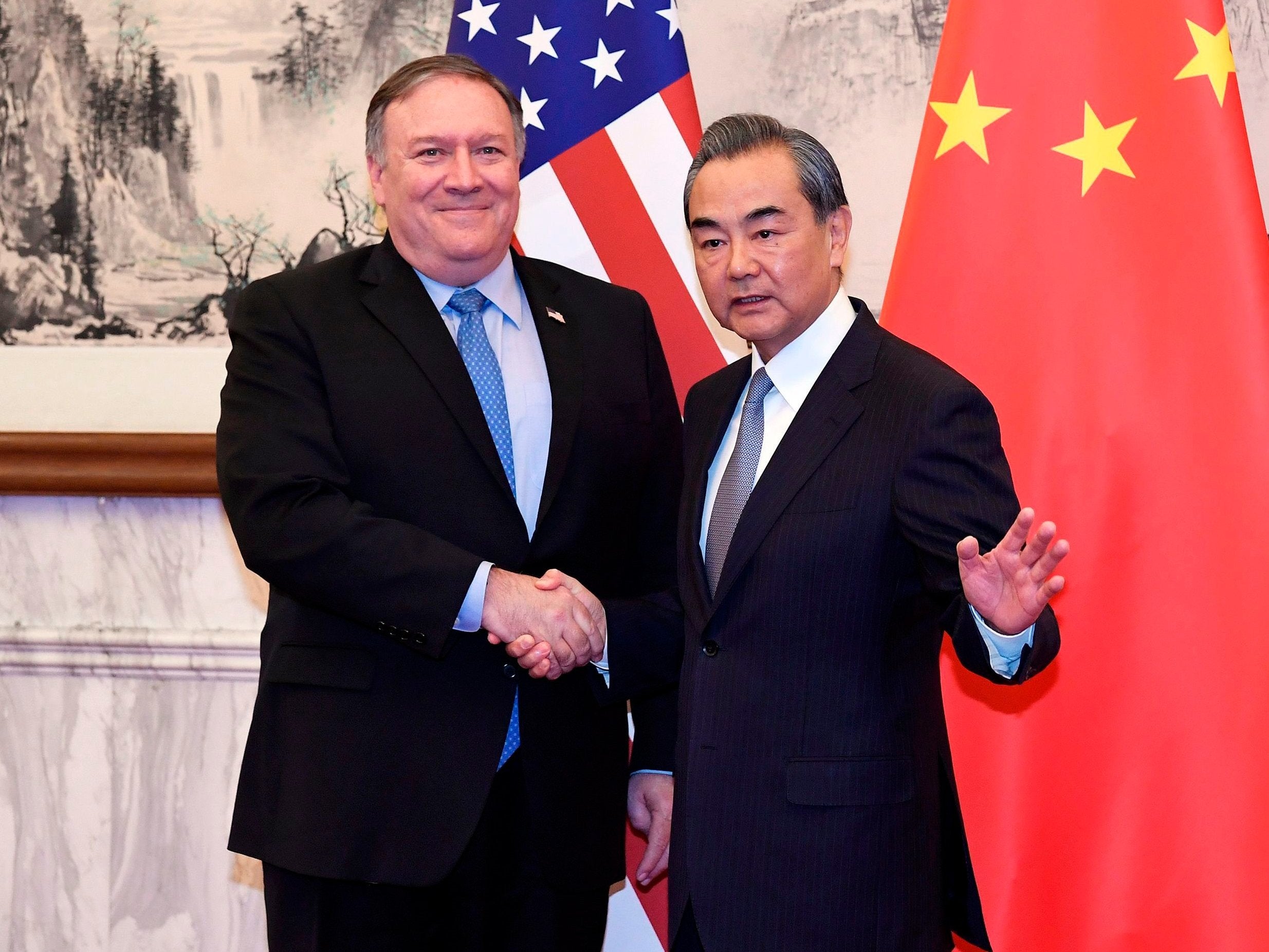Mike Pompeo: Who is the US secretary of state and former CIA director?
Diplomat visits Saudi Arabia to seek assurances on fate of missing journalist Jamal Khashoggi from King Salman
Your support helps us to tell the story
From reproductive rights to climate change to Big Tech, The Independent is on the ground when the story is developing. Whether it's investigating the financials of Elon Musk's pro-Trump PAC or producing our latest documentary, 'The A Word', which shines a light on the American women fighting for reproductive rights, we know how important it is to parse out the facts from the messaging.
At such a critical moment in US history, we need reporters on the ground. Your donation allows us to keep sending journalists to speak to both sides of the story.
The Independent is trusted by Americans across the entire political spectrum. And unlike many other quality news outlets, we choose not to lock Americans out of our reporting and analysis with paywalls. We believe quality journalism should be available to everyone, paid for by those who can afford it.
Your support makes all the difference.Mike Pompeo, the US secretary of state, has met with King Salman of Saudi Arabia to discuss the disappearance of journalist Jamal Khashoggi.
The Washington Post columnist is rumoured to have died under interrogation in Riyadh and President Donald Trump has vowed to “get to the bottom” of the situation.
With the eyes of the world on the former CIA director, who succeeded Rex Tillerson in March, you might be wondering more about him.
What did Mike Pompeo do before entering Trump’s administration?
Before serving as director of the CIA for 14 months, developing a close relationship with Mr Trump by delivering the daily intelligence briefing, Mr Pompeo was a three-time Republican Congressman, representing Kansas.
As a member of the House of Representatives, Mr Pompeo defended the CIA’s use of torture during former George W Bush‘s administration, saying: “These men and women are not torturers, they are patriots... the programmes being used were within the law, within the Constitution.”
He also advocated for keeping the US prison housing several prisoners believed to be members of terrorist groups in Guantanamo Bay in Cuba open because closing it would potentially result in “endless litigation and rights expanded well beyond those afforded to enemy combatants.”
The international law on the matter is murky as long as the US is technically “at war” despite US law dictating these prisoners deserve due process.
The West Point graduate served as a member of the US Army in Germany and in the first Gulf War.

After graduating from Harvard Law School, Mr Pompeo worked as a lawyer for Koch Industries. The multi-billion dollar conglomerate is led by brothers Charles and David Koch, who have been fairly reliable financial and ideological supporters of Mr Trump and small-government views.
Mr Pompeo received thousands in political contributions from the Kochs and employees while he was in office.
Why was Mike Pompeo chosen to succeed Rex Tillerson at the State Department?
Mr Trump referred to Mr Pompeo as having the same “thought process” as himself, implying his predecessor, Mr Tillerson, did not.
Recently departed US ambassador to the United Nations Nikki Haley called the replacement a “great decision” at the time.
“Pompeo was the most political CIA director in memory,” an administration official told Reuters upon his appointment, speaking on the condition of anonymity.

“He dived into policy matters in a way that unnerved many professionals at the agency,” the official added.
“Morale was taking a blow that was spreading from the analytical side, where some people feared he was tailoring some PDBs [President’s Daily Briefs] to tell Trump what he wanted to hear rather than what the intelligence assessments were.”
Mr Pompeo is also on the same page regarding the Iran nuclear deal with the president.
In October 2017, the president decided not to re-certify the historic deal, signed by Iran and six world powers – a signature foreign policy achievement by predecessor President Barack Obama. It opened the door for harsher economic sanctions to be placed on the country, the mitigation of which was a key inducement for Iran to comply with the deal.
Tehran had pledged to rein in its nuclear programme in return for some easing of those economic restrictions imposed on it by the US, the UN and the European Union.
European allies, and even Mr Tillerson according to some reports, continued to urge the president to extend the sanctions relief in order to save the deal. Mr Trump will not hear that from the hawkish Mr Pompeo.
“I look forward to rolling back this disastrous deal with the world’s largest state sponsor of terrorism,” he had tweeted in November 2016, when he was under consideration for the CIA post.
The other issue that puts Mr Trump and Mr Pompeo in the same sphere of thinking is on the general issue of terrorist groups. As a Congressman, he routinely criticised Mr Obama for not using the term “radical Islamic terrorism” when referring to groups like al-Qaeda or Isis. He has no problem framing terrorism, particularly in the Middle East, as a religion-based issue.

Mr Tillerson, however, lauded Mr Trump for leaving the term out of a speech in August 2016.
“Terrorism has manifested itself in many types of organisations. The president has charged us to develop policies and tactics both diplomatically and militarily to attack terrorism in its many forms, wherever it exists in the world, and wherever it might present a threat to the homeland or Americans anywhere. This means that we need to develop techniques that are global in their nature,” he said in response to former Trump aide Sebastian Gorka saying the president should have used the term.
Was Mr Pompeo’s appointment related to the FBI Russia investigation?
Mr Tillerson’s dismissal to make way for Mike Pompeo followed quickly on from his saying the poisoning of a former Russian spy Sergei Skripal and his daughter in the UK was “a really egregious act” that appears to have “clearly” come from Russia.
He had called the Kremlin “an irresponsible force of instability in the world, acting with open disregard for the sovereignty of other states and the life of their citizens”.
In the hours before his sacking, Mr Tillerson also said Russia’s alleged poisoning, in public and on foreign soil, could “certainly will trigger a response” from the North Atlantic Treaty Organisation (Nato).
Long a critic of the president’s decision-making, Democratic Senator Chuck Schumer said he hoped Mr Pompeo would “turn over a new leaf” and toughen policies towards Russia and its president, Vladimir Putin.
“Americans should rest assured that we have a very good understanding of the Russian programme and how to make sure that Americans continue to be kept safe from threats from Vladimir Putin,” Mr Pompeo told Fox News.
While Rex Tillerson, a former Texas oil and gas executive, shied away from media coverage whenever it could be avoided, Mr Pompeo welcomed it.
He has repeatedly, publicly and unequivocally defended the president during the ongoing FBI and Congressional investigations into possible collusion between Trump campaign team members and Russian officials.
In January 2017, the US intelligence community issued a joint report that concluded it “did not make an assessment of the impact that Russian activities had on the outcome of the 2016 election”.
In October 2017, Mr Pompeo said the opposite during an appearance at a think tank that the intelligence community – that the intelligence community said Russia had no impact on the result of the election.
While serving as CIA director, he catered to Mr Trump’s political whims as well, taking a meeting at the President’s request with a conspiracy theorist “who believes Russia’s hack and release of Democratic National Committee emails last summer was instead an inside job,” according to Vox.

Join our commenting forum
Join thought-provoking conversations, follow other Independent readers and see their replies
Comments